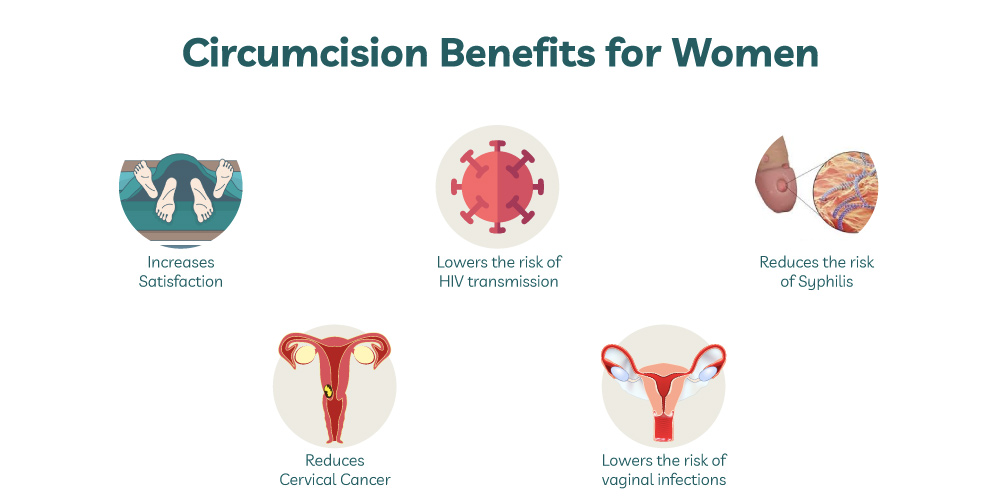The Benefits of Circumcision
Circumcision is a surgical procedure that involves the removal of the foreskin covering the head of the penis. It is a practice that has been performed for centuries and is prevalent in many cultures around the world. In this article, we will explore the various benefits of circumcision and shed light on why it is considered an important decision for many individuals and communities.
Improved Hygiene
One of the key benefits of circumcision is improved hygiene. The removal of the foreskin makes it easier to clean the penis, reducing the risk of infections and other related issues. Without the foreskin, there is less accumulation of smegma, a substance that can build up under the foreskin and lead to unpleasant odors and potential infections. This improved hygiene can contribute to better overall genital health.
Reduced Risk of Urinary Tract Infections
Research has shown that circumcision can significantly reduce the risk of urinary tract infections (UTIs) in males. UTIs can be painful and lead to more serious complications if left untreated. By removing the foreskin, the risk of bacteria getting trapped and causing infections is minimized. This is particularly important in infants and young boys who may be more susceptible to UTIs.
Lower Risk of Sexually Transmitted Infections
Studies have indicated that circumcision can provide some protection against sexually transmitted infections (STIs) such as HIV, herpes, and HPV. The removal of the foreskin reduces the surface area where viruses and bacteria can enter the body, thus lowering the risk of transmission. However, it is important to note that circumcision does not eliminate the need for safe sexual practices and the use of protection.
Prevention of Penile Problems
Circumcision has been associated with a lower risk of certain penile problems, such as phimosis and paraphimosis. Phimosis is a condition where the foreskin is too tight and cannot be retracted, while paraphimosis is the inability to return the foreskin to its original position after it has been retracted. Circumcision eliminates the possibility of these issues, ensuring better penile health and reducing the need for future medical interventions.
Potential Decrease in Risk of Penile Cancer
While rare, penile cancer is a serious condition that can affect males. Studies have suggested that circumcision may reduce the risk of penile cancer, particularly in cases where the procedure is performed during infancy. The removal of the foreskin eliminates the moist environment that can promote the growth of cancer-causing agents, thus potentially reducing the likelihood of developing this type of cancer.

Circumcision offers several benefits, including improved hygiene, reduced risk of urinary tract infections, lower risk of sexually transmitted infections, prevention of penile problems, and a potential decrease in the risk of penile cancer. It is important to note that the decision to undergo circumcision is a personal one and should be made in consultation with healthcare professionals. By understanding the potential benefits and risks associated with circumcision, individuals and parents can make informed decisions regarding this procedure.
Frequently Asked Questions about the Benefits of Circumcision
1. What is circumcision?
Circumcision is the surgical removal of the foreskin, the skin covering the tip of the penis.
2. Is circumcision beneficial?
Yes, circumcision has various benefits including improved hygiene, reduced risk of certain infections, and lower rates of certain diseases.
3. Does circumcision improve hygiene?
Yes, circumcision can make it easier to maintain genital hygiene as it eliminates the need to clean under the foreskin.
4. Does circumcision reduce the risk of urinary tract infections (UTIs)?
Yes, studies have shown that circumcised males have a lower risk of urinary tract infections compared to uncircumcised males.
5. Can circumcision lower the risk of sexually transmitted infections (STIs)?
Yes, circumcision has been associated with a reduced risk of acquiring certain sexually transmitted infections, including HIV.
6. Does circumcision decrease the risk of penile cancer?
Yes, research suggests that circumcision reduces the risk of penile cancer, although this type of cancer is already rare.
7. Are there any benefits of circumcision for female partners?
Yes, studies have shown that female partners of circumcised males have a lower risk of certain infections, such as bacterial vaginosis and trichomoniasis.
8. Does circumcision affect sexual pleasure or function?
Circumcision generally does not have a significant impact on sexual pleasure or function. Many circumcised individuals report no difference in sexual satisfaction compared to uncircumcised individuals.
9. Is circumcision recommended for all males?
Medical organizations like the American Academy of Pediatrics state that the decision to circumcise should be based on individual circumstances and personal beliefs.
10. Are there any risks or complications associated with circumcision?
While complications are rare, like with any surgery, circumcision does carry some risks such as bleeding, infection, or adverse reactions to anesthesia. These risks are generally low when performed by trained healthcare professionals.




